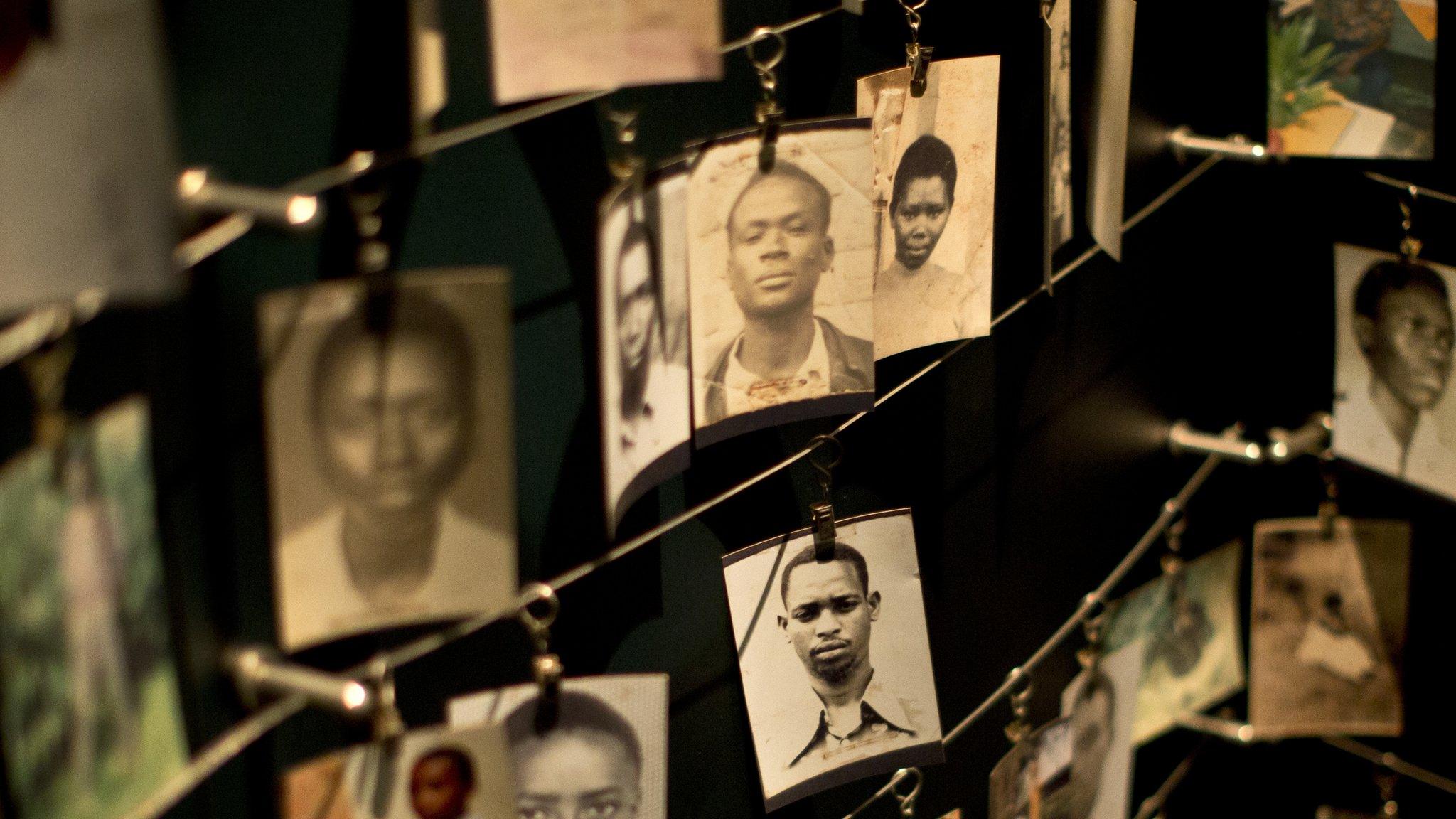Rwanda genocide: Macron orders probe of France's role
- Published
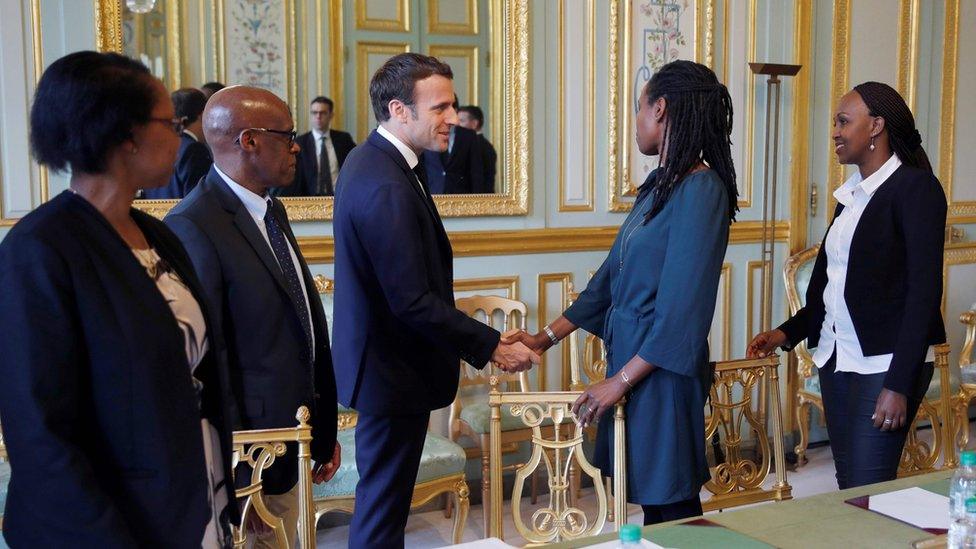
On Friday Mr Macron met French representatives of a Rwandan genocide survivors group
French President Emmanuel Macron has appointed a panel of experts to investigate France's role in Rwanda's genocide 25 years ago.
An estimated 800,000 Rwandans, most from the minority Tutsi community, were killed by ethnic Hutu extremists over 100 days in 1994.
Rwanda has accused France of complicity in the mass killings - a charge repeatedly denied by Paris.
The experts will now consult archives to analyse France's role.
They will have access to presidential, diplomatic, military and intelligence archives, Mr Macron's office said in a statement.
Julien Allaire of Survie, a Paris-based NGO that focuses on relations between France and Africa, told the BBC that there was already ample evidence of "France's diplomatic, military and economic support for the Rwandan government before, during and after the genocide".
In 2015, then-President Francois Hollande announced that the Rwanda archives would be declassified but two years later, after a researcher sought permission to study them, France's Constitutional Council ruled that they should remain secret.
The constitution says papers deposited in the archives by a president or minister can remain secret for 25 years after that person's death. The president at the time of the genocide, Francois Mitterrand, died in 1996.
What is the purpose of the investigation?
Looking at the period from 1990 to 1994, it is hoped that the findings made by the eight historians and researchers will "contribute to a better understanding and knowledge" of what happened, the presidency said.
"The goal is to deliver a report which will be published in two years' time... and will be accessible to all," it added.
France was a close ally of the Hutu-led government of Juvenal Habyarimana prior to the massacres.
Rwanda genocide 25 years on: Why I forgave my children's killer
It was the shooting down of his plane over the capital Kigali in April 1994 that triggered the genocide.
Rwanda has accused France of ignoring or missing warning signs and of training the militias who carried out the attacks.
It also says French forces, stationed there as part of a UN peacekeeping operation, used the creation of a safe zone to help some of the perpetrators to escape.
The issue has long strained relations between the two countries, though they have improved over the past decade.
But no French president has ever attended the annual commemorations in Rwanda. Mr Macron turned down an invitation for this weekend's events, citing scheduling problems.

Rocky relations
• 1994: France sends troops to Rwanda; Rwanda later accuses France of protecting genocide suspects
• 2006: French judge accuses Tutsis including President Paul Kagame of the 1994 Habyarimana killing; Rwanda breaks diplomatic ties
• 2009: Rwanda joins Commonwealth; restores diplomatic ties with France
• 2010: French President Nicolas Sarkozy visits Rwanda, admits France made mistakes in 1994
• 2011: Mr Kagame visits Paris, says it is time to leave history behind
• 2018: France drops long-running investigation into the Habyarimana killing
- Published15 September 2017
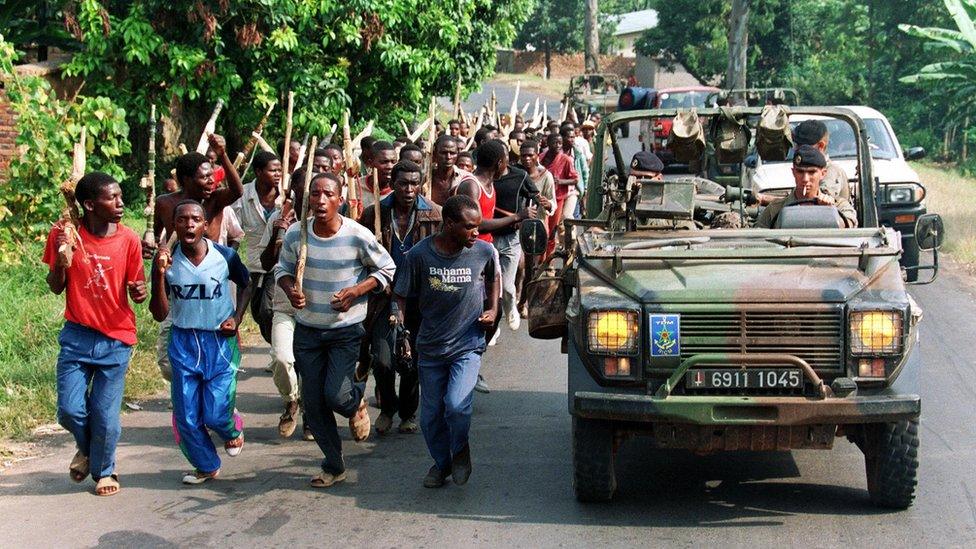
- Published4 April 2019
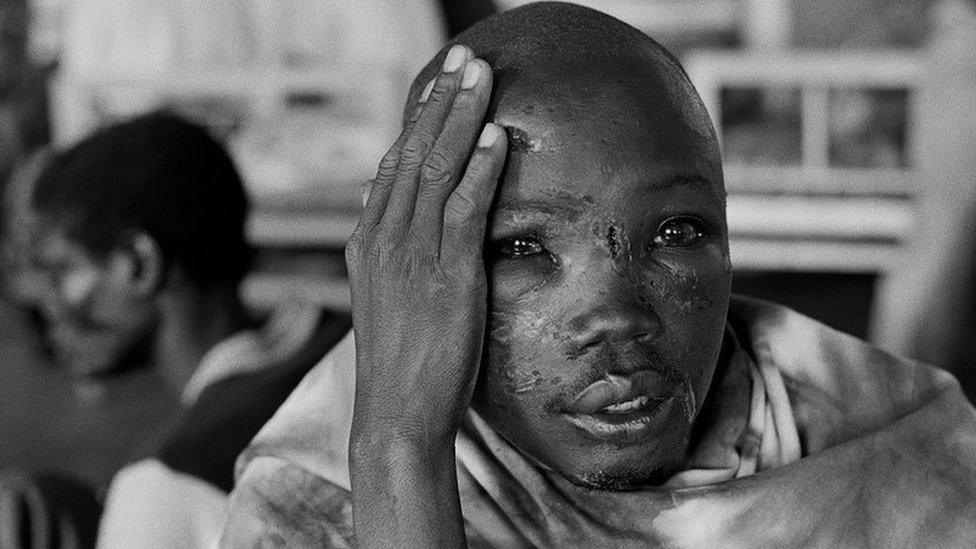
- Published26 December 2018
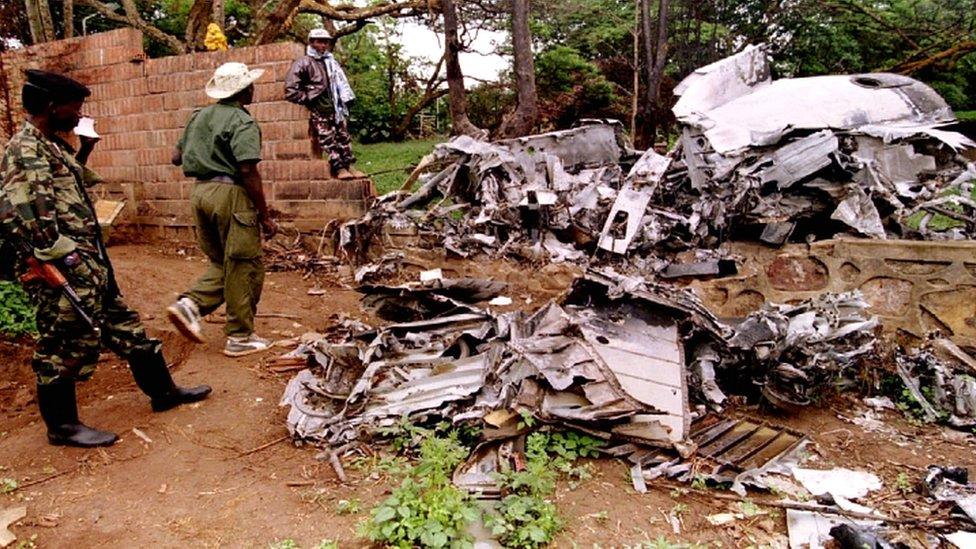
- Published29 November 2016
